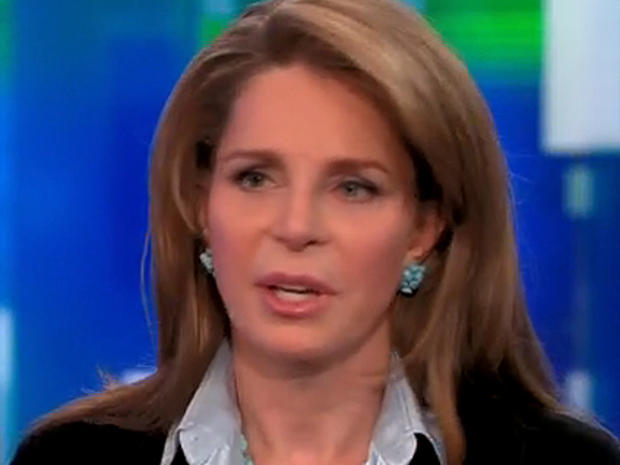Queen Noor: Don't Exclude Muslim Brotherhood
Her Majesty Queen Noor of Jordan believes Egypt could be a model for a peaceful transition, and that enacting the reforms necessary to ensure stability in the country, though challenging, present "enormous opportunities" for the nation and the region.
"But there's going to have to be some concrete steps, not cosmetic steps and not just rhetoric. They're going to have to give some form to this as soon as possible," she said on CNN Monday night.
"I think and hope and pray that's what will be the focus of different governments and people and parties in our region as a whole," the Queen said. "I think what's happening in Egypt, Tunisia today, and perhaps elsewhere, these can be models for peaceful transition to more open, more accountable governance, and towards societies that offer more opportunities - social, economic, and political - for a cross-section of their people.
"And I truly believe - and I have for 30 years, I used to argue this in Jordan as well - that to achieve true national security, which is the issue in the debate that has always predominated in Egypt and many of these other countries and has justified a multitude of policies, that you can't divorce that from human security.
"And if you see your national security and your human security as one and the same thing, your people engaged, free and feeling a sense of investment in their own country, that is the way you achieve true national security," she said. "And that is where America will find her strongest and most reliable allies."
Complete Coverage: Anger in the Arab World
Queen Noor, who was born and raised in the United States and educated at Princeton University, said that the U.S. is "extremely polarized, not unlike some of the societies in the Middle East that we're talking about right now. Depending on who you're watching on television or which cable news channel, you're getting very different kinds of analysis and perhaps projections of what this means for the future and for the United States.
"So I would say that the first and most important thing for people in this country to do is to really look for thoughtful analysis of what is taking place and to look for the areas in the center, rather than listening to the extremes," she told interviewer Piers Morgan.
She was particularly struck by remarks made by those she feels lack an understanding of the role of religion in Egypt today, inflating its function as a political force compared to other societies.
She was asked to comment on remarks made by former House Speaker Newt Gingrich
on Monday in which he condemned any outreach by the U.S. to the Muslim Brotherhood, one of Egypt's leading opposition groups. (Gingrich said, "I think this is absolute, total misreading of history. The Muslim Brotherhood is a mortal enemy of our civilization. They say so openly. Their slogan says so openly. Their way is jihad, their method is death. For us to encourage in any way the inclusion of the Muslim Brotherhood is fundamentally wrong.")
"Well, I think that that is this very polarizing approach to what is taking place in the Middle East that has dominated for a very long time, that assumes that anyone, that any religious group is somehow dangerous and extreme," said Queen Noor. "Religion is important to most Arabs, and most Arabs actually are moderate, peaceful centrists, and wanting what these people are wanting on the streets of Cairo.
"So the Muslim Brotherhood are one of many groups throughout the region that have points of view that need to come to the table, need to be part of the dialogue and the governance-building process, if you will, but they're only one of a multitude of other groups."
She said such polarizing comments by politicians are "unhelpful."
"The extremes on both sides are very unhelpful," she told Morgan, "and I think that there are enough people actually - in this particular case, there seem to be people on both sides of the political spectrum in this country, on all sides, including independents, that are actually providing very nuanced and thoughtful analysis. I'm seeing it on most of the networks.
"That's not usually the case when . . . a crisis like this erupts in the Middle East. They are pausing, they are taking a moment to think it through, and they're supporting [President Obama]."
She also recalled recent images of Christians protecting Muslims as they prayed in the midst of a crackdown on street protests in Egypt: "One of the most moving sights, and one that has done more to help, I think, promote a sense of what is a real in our region - in terms of interfaith dialogue and relations - than any of the efforts that so many of us make in our daily lives to promote a more accurate understanding of the role of religion."
